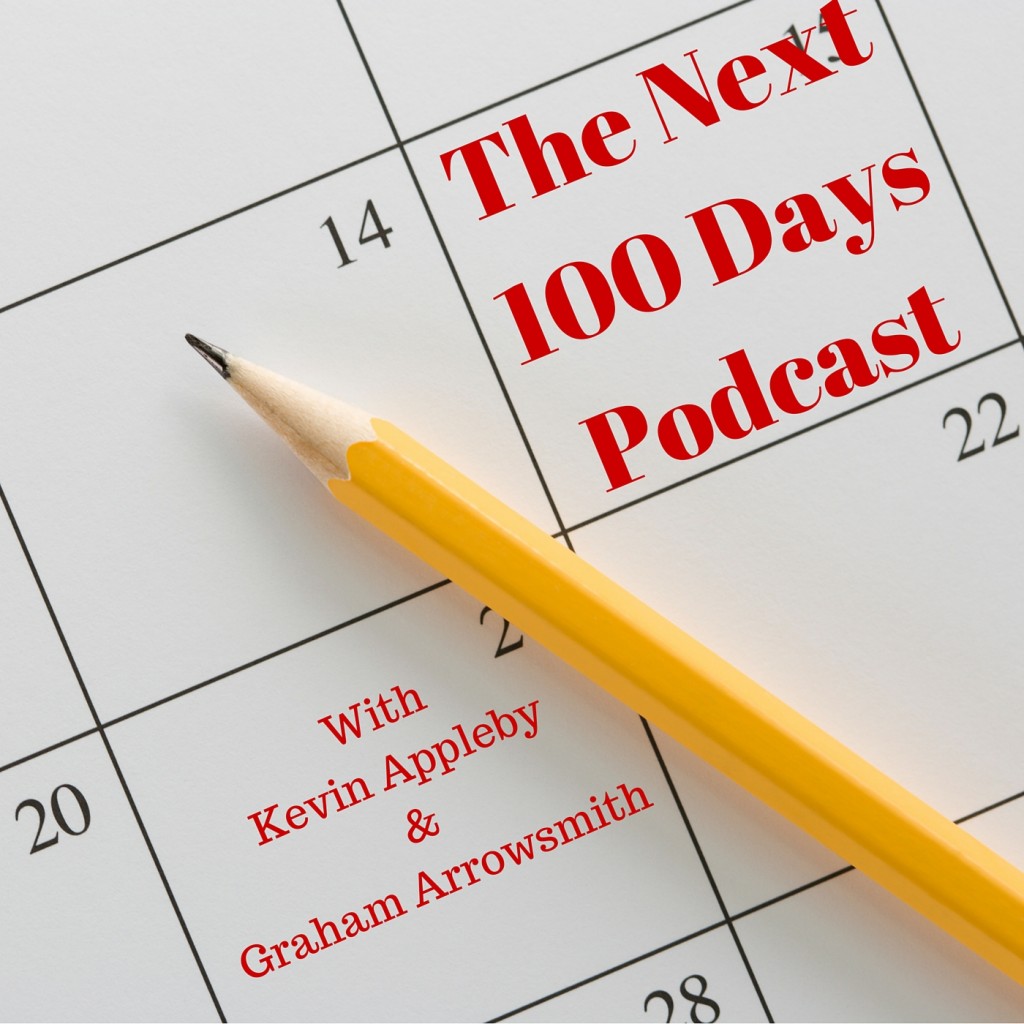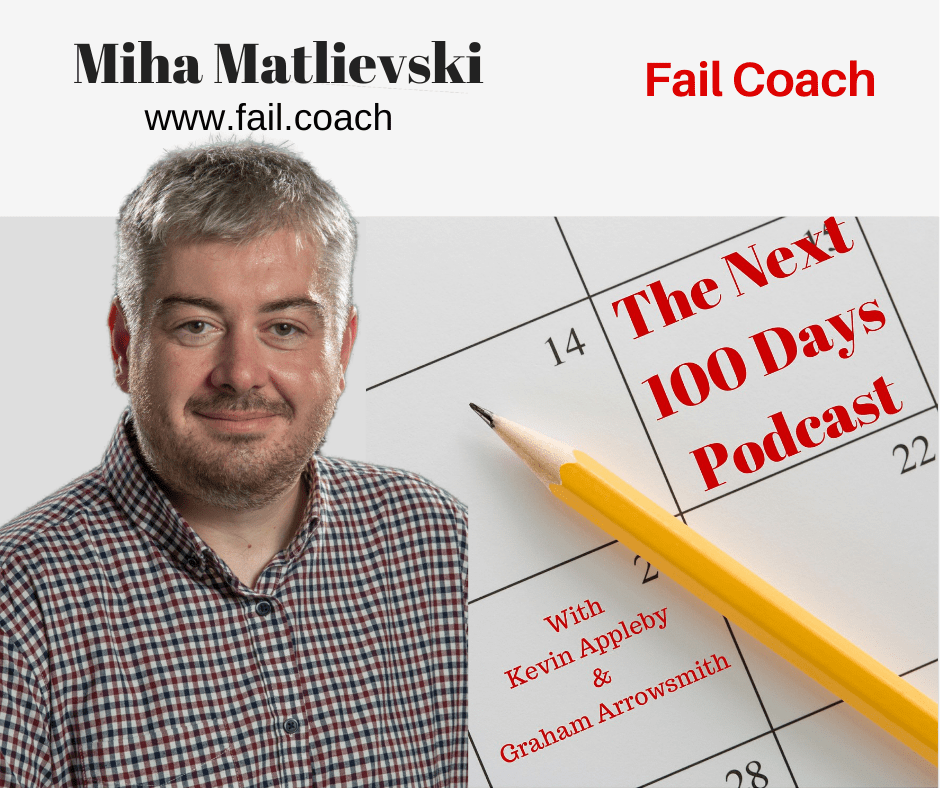Being a Fail coach with Miha Matlievski
Miha Matlievski calls himself the Fail coach. Why? Firstly, because he learnt most of what he knows about running and scaling a business through failures. Also, after bouncing back from his negative reactions to his own failures, he realised failure happens when you push yourself outside of the comfort zone. Now, he still fails but has systems in place to recognise and bounce back from failures sooner. As a result, he believes having a good relationship with failure is the key element to succeeding faster.
The fail coach: how did you realise you could talk about failure as a business?
When Miha was 17, he dropped out of high school. He started his entrepreneurial journey at 18 but he thought, because he was good at sales, he was a good entrepreneur. He never took the time to look at what makes a good, solid foundation. Where he was riding a good economic wave, he didn’t actually understand business. He lived a luxurious life without really knowing what a good entrepreneur was.
Then, suddenly the crisis came. His life looked like the house made from straw in the three little pigs story. The bank said his ventures would not be profitable and they were out! Miha owed lots of money, he got divorced and lost people he thought were friends. Unfortunately, Miha became depressed and suicidal.
There was a turning point in Miha’s thinking where he stopped blaming outside factors and took charge of his own actions – his own failures.
Miha used three and a half years to bounce back before he could take all those lessons from the failures to create a new start up. It was incredibly successful and he managed to pay a large portion of his past debts. As a result, he had the luxury of time, money and choice. He loved spending time being surrounded by entrepreneurs and decided helping others was so much more productive than creating yet another company.
Why did your mindset change?
Looking back, Miha sees that no-one wanted to kill him. However, those threats were still made. Miha was young and fresh in the business world. So, these threats were taken seriously.
What were the key lessons you learnt from bouncing back?
- The first foundation starts with you: the entrepreneur. Who are you? What do you want be and achieve? What are your passions?
- Mindfulness allows you to step away from the moment and turns off autopilot.
- Emotional intelligence. We use emotion where logic is needed and use logic where emotion is needed. Consequently, entrepreneurs must use emotional intelligence as a compass to balance yourself. Be grounded.
- Don’t fear regret – push outside of your comfort zone and do it!
The beauty of Miha is that he has authority to coach others. He has endured hard and dark times. Therefore, as a fail coach, he can truly empathise. Also, he offers hope because his presence shows you can get through dark times.
Most entrepreneurs are the creative type; we come up with crazy ideas, we see problems and we see solutions. However, we don’t want to deal with the boring stuff. Nobody wants to go through making strong foundations. Entrepreneurs want to get running and forget the walking!
Yet, the only right way to a sustainable business is to balance the two. Most have no systems in place so they rely on people, but then you are hostage to that person. There’s little freedom.
Miha – the fail coach – in your pocket
Let’s stop talking about business for a second. If you rarely cook and someone wants you to cook a risotto, you might grab a cooking book a tutorial. But, the most valuable act of learning is to find someone who can an excellent risotto and go through the recipe with them. Personal connection, communication and relationships are key to effective learning.
Miha has started a new service as part of his offer. It’s called Miha in your pocket! You take your phone out of your pocket, turn on the app and bam, there’s Miha! Miha has about 20 people who are progressing well in their business development and this new service has contributed. It is micro coaching whenever you need it. Consequently, they get real value as Miha’s clients.
What do the next 100 days look like in the midst of failure?

The first key thing to work on is to own your failures. If you’re not ready – if you blame it on God or others – you can’t start the journey. There are also people who keep it in and their first step would be to get it out and share it. When you’re dealing with failure you feel ashamed and don’t talk about it, but talking about it starts healing. You also need to recognise it was all you and this is one of the main things Miha walks his clients though.
Turn off the emotional side because emotions cloud your judgement when it comes to failure. Failure is just a product of either having a desire or a goal that was wrong, or the process to achieve those things were wrong.
It can often take 9 to 12 months to go from a place of failure to a full bounced back client. But, once they’re there it’s easy breezy and the business can be scaled.
Conclusively, the next 100 days is all about owning the failure, admitting to that failure and starting to put foundations in place.
A strategy for all failure
- Reflect on the failure. Ak yourself questions: what can I learn from this? What can I do differently? Were there any other options?
- Make a plan about how you can do it better next time.
It’s really that simple. It takes time to get that point where you can be rational and logical about your failures. Previously, Miha used the 5 minute rule where he would vent for 5 minutes then enough was enough – he would solve the problem.
Keep an eye out for Miha’s new idea Failures Anonymous.
What a brilliant podcast. If you’re interested in the fail coach services, click here.
The next 100 days podcast is sponsored by Linked Professionally and is brought to you by Kevin Appleby and Graham Arrowsmith





